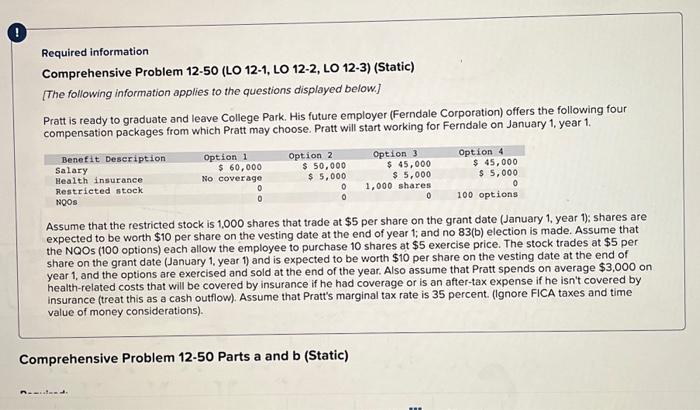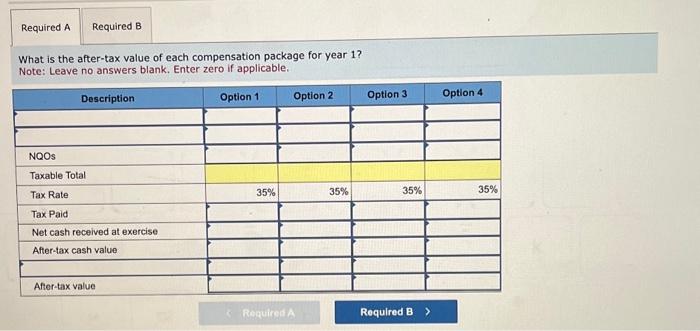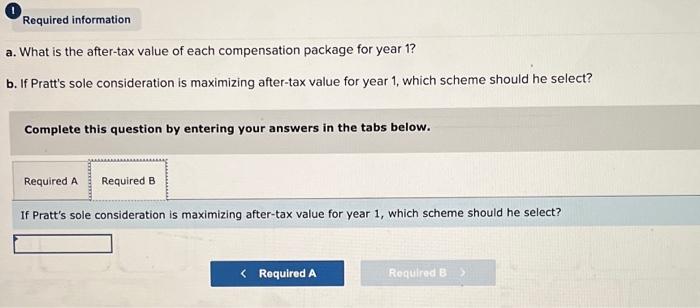Answered step by step
Verified Expert Solution
Question
1 Approved Answer
! Required information Comprehensive Problem 12-50 (LO 12-1, LO 12-2, LO 12-3) (Static) [The following information applies to the questions displayed below.] Pratt is ready
! Required information Comprehensive Problem 12-50 (LO 12-1, LO 12-2, LO 12-3) (Static) [The following information applies to the questions displayed below.] Pratt is ready to graduate and leave College Park. His future employer (Ferndale Corporation) offers the following four compensation packages from which Pratt may choose. Pratt will start working for Ferndale on January 1, year 1. Benefit Description Salary Health insurance Restricted stock NQOS Option 1 $ 60,000 No coverage 0 Option 2 $ 50,000 $ 5,000 0 0 Option 3 $ 45,000 $ 5,000 1,000 shares 0 Comprehensive Problem 12-50 Parts a and b (Static) Option 4 $ 45,000 $ 5,000 0 100 options Assume that the restricted stock is 1,000 shares that trade at $5 per share on the grant date (January 1, year 1); shares are expected to be worth $10 per share on the vesting date at the end of year 1; and no 83(b) election is made. Assume that the NQOS (100 options) each allow the employee to purchase 10 shares at $5 exercise price. The stock trades at $5 per share on the grant date (January 1, year 1) and is expected to be worth $10 per share on the vesting date at the end of year 1, and the options are exercised and sold at the end of the year. Also assume that Pratt spends on average $3,000 on health-related costs that will be covered by insurance if he had coverage or is an after-tax expense if he isn't covered by insurance (treat this as a cash outflow). Assume that Pratt's marginal tax rate is 35 percent. (Ignore FICA taxes and time value of money considerations).



Step by Step Solution
There are 3 Steps involved in it
Step: 1

Get Instant Access to Expert-Tailored Solutions
See step-by-step solutions with expert insights and AI powered tools for academic success
Step: 2

Step: 3

Ace Your Homework with AI
Get the answers you need in no time with our AI-driven, step-by-step assistance
Get Started


